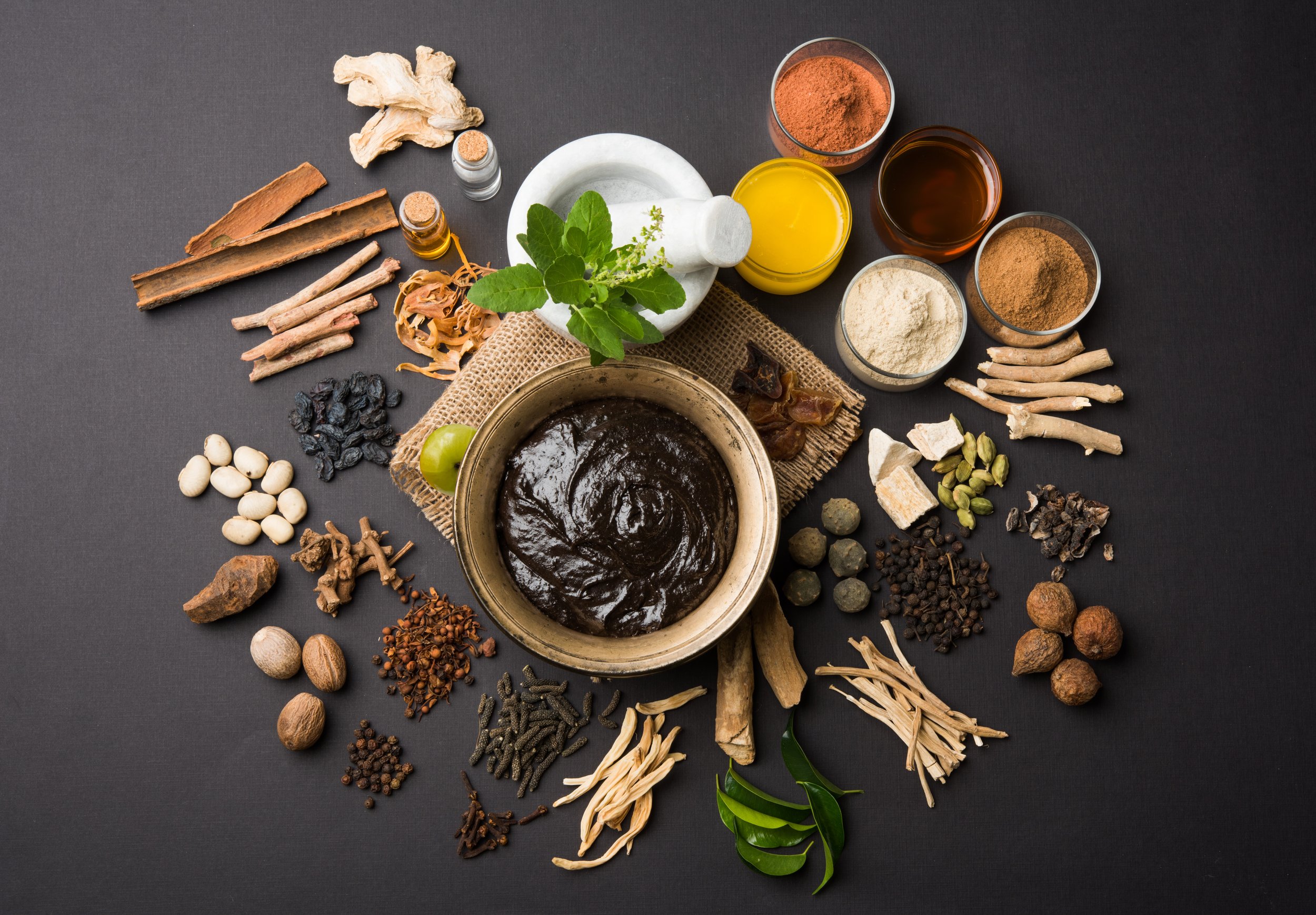HEALTH BENEFITS || 9 Ayurveda Herbs and Spice that Offers Health Benefits

As mentioned last week in our introduction article to Ayurveda practices, the holistic approach is a well-known Indian system of medicine.
Rather than treating a disease, its goal is to prevent it. It aims to keep the mind and body in balance. And to do so it requires a combination of diet, exercises and lifestyle changes. We shared a few Ayurvedic practices in the previous article , so let’s dive into things that we can add into our daily diet today.
I’d like to share with you the top 9 power Ayurveda herbs and spices that offer great health benefits, such as improving digestion and mental health. Although I haven’t personally tried all of these, I've heard great things about them through friends and family!
Herbs and Spices
1. Ashwagandha
Ashwagandha is a woody plant, its roots and berries are used in Ayurvedic remedies. There are a number of benefits to this special plant. It can help your body manage stress more effectively. For those with anxiety or associated disorders, it is said to improve sleep and lower anxiety levels . It can also work as an immune system booster and reduce inflammation!
2. Boswellia
Known as an Indian frankincense, Boswellia comes from a Boswellia serrata tree. It is meant to reduce inflammation and joint pain, and to improve digestion and breathing for those with chronic asthma.
3. Triphala
Triphala is an Ayurvedic remedy that consists of three medicinal fruits - amla, bibhitaki, haritaki. This remedy reduces joint inflammation, improves digestion and promotes oral health.
4. Brahmi
This herb is believed to lower inflammation, improve brain functions such as memory, information processing, attention and learning rates. Being said, it also reduces symptoms of ADHD.
5. Cumin
I’ve used cumin quite a lot in my food recipes! It is a spice made from seeds of Cuminum cyminum plant and is known for its earthy, nutty and spicy flavour. Cumin generally boosts the activity of digestive enzymes - speeding up digestion and easing the digestion fats. This Ayurvedic spice also reduces abdominal pain and bloating!
Especially during the time of the month, this spice does wonders!
6. Turmeric
Quiz time! What is one of the main ingredients in the Ayurveda Golden Milk recipe? That’s right, it’s turmeric!
We mentioned last week that this spice is the key to balancing the three doshas in our body. It helps protect against heart disease, reduces inflammation and improves brain health. If you’re looking to incorporate Ayurveda herbs and spices in your diet, and are skeptical about some of the ones I’ve mentioned before, start with turmeric and work your way up!
7. Licorice Root
This Ayurvedic spice comes from the Glycyrrhiza glabra plant and holds a special place in Ayurvedic Treatments. Licorice Root helps with reducing inflammation and fights viruses and bacteria. It relieves sore throats and promotes oral health by protecting against cavities (yikes!). It is also believed to help with heartburns, bloating, nausea and stomach ulcers. And when you apply the actual spice to the skin, it can reduce symptoms of skin rash.
8. Bitter Melon
Are these herbs and spices starting to sound familiar now? Little did you know, bitter melon is filled with nutrients and powerful antioxidants. It can help with lowering blood sugar levels and boost insulin secretion.
9. Cardamom
Known as the queen of spices, Cardamom has been in Ayurvedic medicine since . . . forever! This spice reduces blood pressure. And here’s an interesting fact - Inhaling cardamom essential oil can help with increasing the uptake of oxygen into lungs while you’re exercising!
Herbs and Supplements
What are your thoughts on Ayurveda herbs and spices? Since these are completely natural, I feel as though they are safe to consume, especially when you incorporate them in your food recipes to add a bit of flavour. Many of you may already be consuming them, but in the form of a supplement. Although there isn't a right or wrong to this (whether to consume the herbs and spices directly or to take the supplement form), I do recommend that if you prefer to take supplements, it’s best that you consult your health provider for the dosage!







